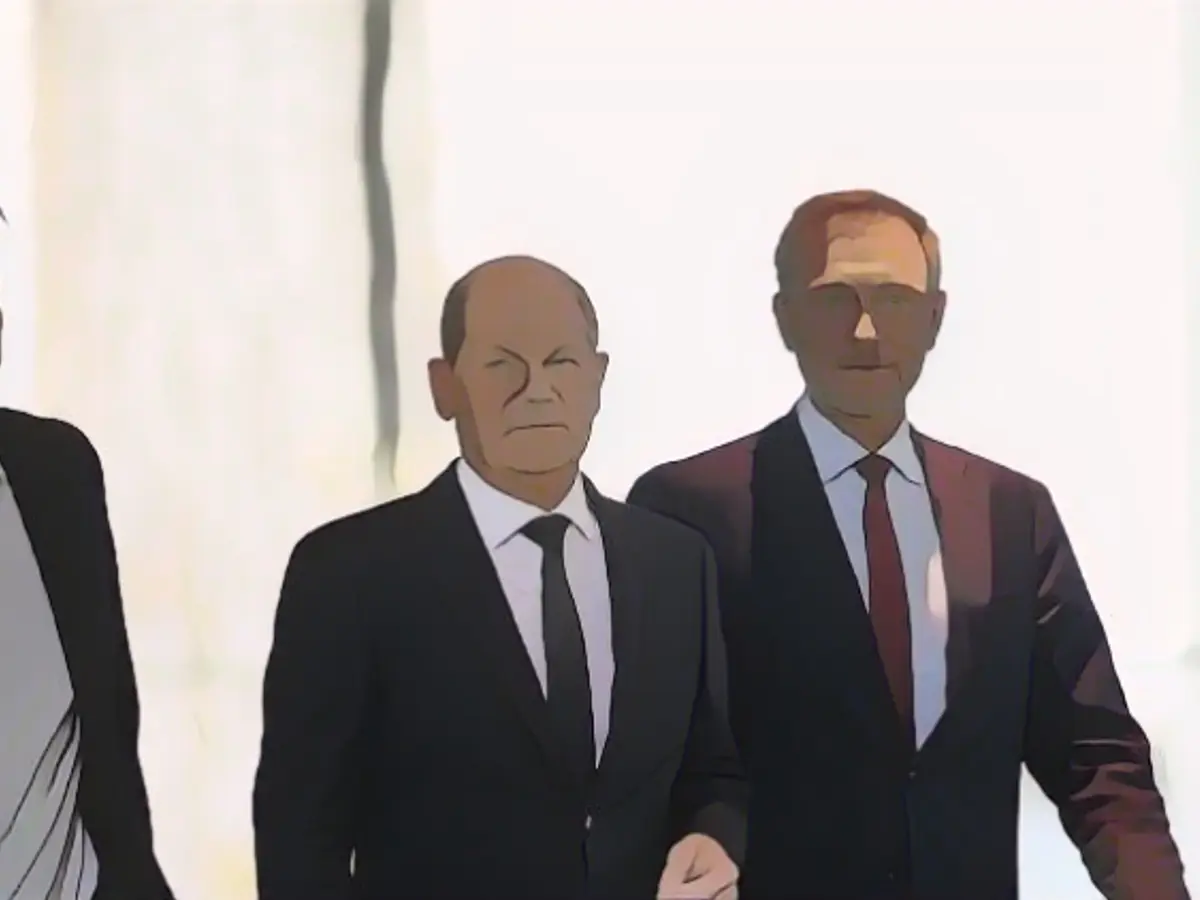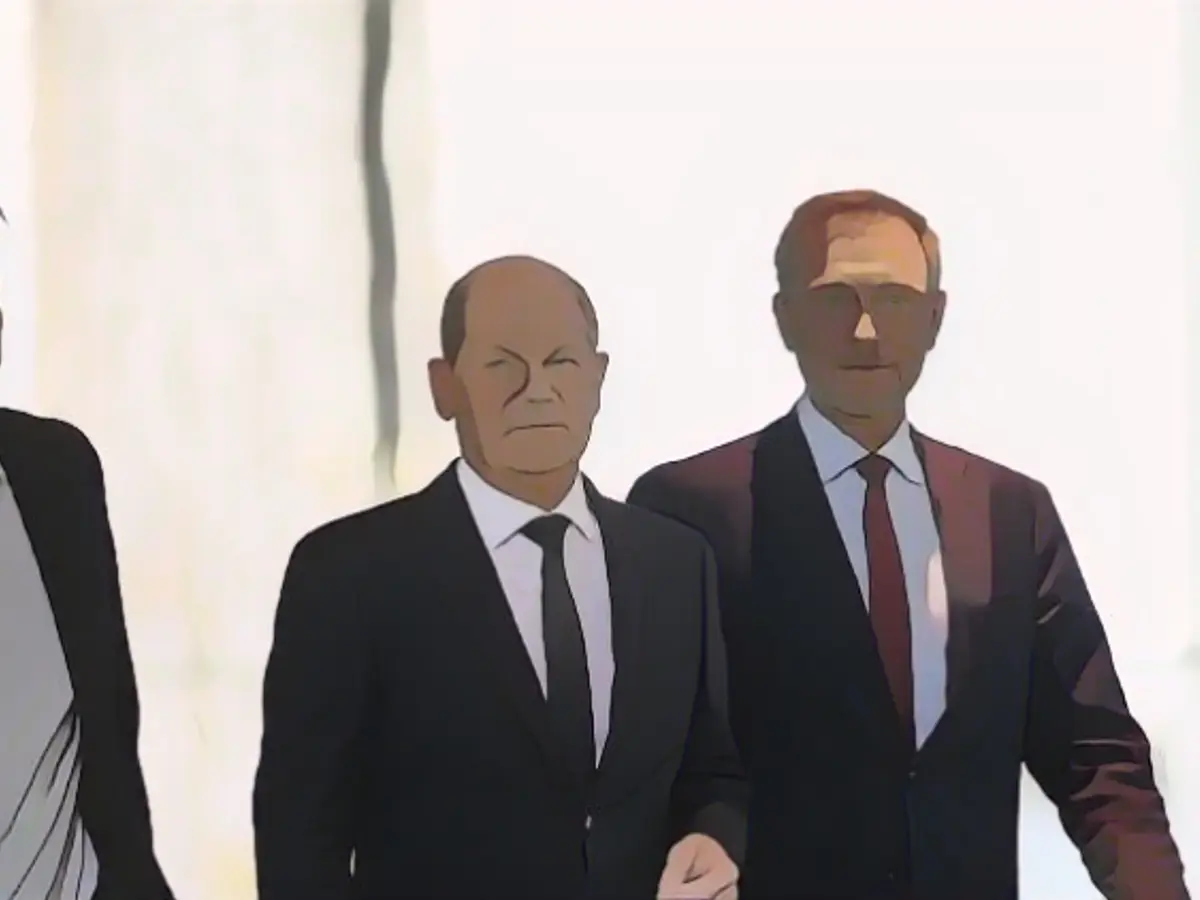Will Lindner break up the traffic light coalition?
Something is brewing in the federal government. The Karlsruhe ruling has plunged the coalition into an acute budget crisis. Unlike the SPD and the Greens, FDP leader Lindner is calling for the remaining money to be used for economic purposes. Some things are reminiscent of Genscher in 1982, when SPD Chancellor Schmidt terminated the coalition.
The traffic light coalition is facing a dramatic ordeal. There are increasing indications in Berlin that the FDP will soon question its participation in the government if the Greens and SPD are not prepared to make a fundamental change in financial policy. As a warning shot, Federal Finance Minister Christian Lindner has already imposed a budget freeze on almost the entire federal budget for 2023. The FDP parliamentary group in the Bundestag has said that the chances of the coalition coming to an end "this winter" are "increasing by the hour".

After the Federal Constitutional Court overturned the budget maneuvers of the traffic light coalition, a fundamental disagreement has broken out. The SPD and Greens want to raise new money for their spending plans by increasing taxes, taking out new loans and suspending the debt brake. Green Vice-Chancellor Robert Habeck said: "So we have to find or raise the money elsewhere." This is exactly what the FDP does not want. For Lindner, certain guard rails are non-negotiable: "on the one hand, the debt brake, where we have new legal clarity, and on the other, the renunciation of tax increases." Mutual accusations are already boiling over and the tone is getting sharper.
But unlike in previous coalition disputes, this time it is not about an individual law, but about the master plan of the traffic light policy - and the FDP seems determined to remain firm.
"We don't have a revenue problem"
Lindner speaks in a bitter tone of voice of a turning point in the history of the Federal Republic. An honest "new start" is needed for public finances, it is time "for a new realpolitik": "We will have to make more effective policies with less money than in the past decade", Lindner warned via X. "We don't have a revenue problem, we have a problem with setting priorities that we have had for many years." He recommends a government reform towards less bureaucracy, agile administration, technology-friendliness and the mobilization of private capital for investments. "Everyone must now realize that ever-increasing expectations of the state cannot be met." However, this is diametrically opposed to the SPD and Greens' understanding of politics.
The situation is exacerbated by the fact that the economic stabilization fund (and thus the electricity and energy price brakes) will probably not stand up to a constitutional review. Even the current budget will probably have to be completely rewritten and made drastically more economical. The Federal Audit Office has already stated that it considers the federal budgets for this and the coming year to be "extremely problematic from a constitutional point of view" following the Karlsruhe budget ruling.
The budget crisis is exacerbating the already fragile situation of the coalition government. The government is already unable to get to grips with the migration and economic crisis - the objectives of the FDP and the Greens in particular are too far apart.
Westerwelle before their eyes
Internally shattered, openly divided and suffering from miserable poll ratings, the coalition is teetering towards a final break. The coalition parties are already facing disaster in the European elections and the AfD could even become the strongest party. The chancellor's concept of quietly muddling through is unlikely to work this time, as the budget crisis is forcing harsh consequences. And: the mood among the Liberals is not just nervous or disappointed, it is increasingly angry, because the political survival of the FDP is at stake.
Up to now, the FDP has been able to explain to its own voters, barely lukewarmly, that it has prevented worse things here and there. Now, however, the party must prove its steadfastness on the major fundamental issue in order to save its credibility.
Lindner and his party colleagues still have the FDP trauma with Guido Westerwelle in mind. After just one parliamentary term, Westerwelle was responsible for the FDP's fall from a record result in 2009 (14.6%) to being thrown out of the Bundestag in 2013 because he was unable to give federal politics a liberal profile and disappointed middle-class voters ended up rallying behind the CDU again. Lindner will want to avoid this at all costs.
Lambsdorff paper as a blueprint
And so the great narrative of the "Genscher turnaround" is now rearing its head in the FDP. More and more liberals are advising Lindner not to run blindly into ruin like Westerwelle, but to let the government collapse prematurely like Hans-Dietrich Genscher in 1982. Genscher resigned from the SPD chancellor at the time, Helmut Schmidt, because he was barely able to assert himself against his left wing of the party, Germany was suffering badly as a business location in an energy crisis and state finances were getting out of hand. The circumstances are similar. The budget crisis could therefore lead to exactly that - that Lindner does not do the Westerwelle, but the Genscher and soon lets the unpopular coalition collapse in a gloomy December mood.
It was precisely on December 5, 1982 that Genscher had his Economics Minister Otto Graf Lambsdorff publish the famous paper "Concept for a policy to overcome weak growth and combat unemployment". It became the divorce letter of the social-liberal era. Today, Lambsdorff's paper could almost serve as a blueprint for Lindner, as he called for sound public finances, less debt, strict budget consolidation, a restructuring of public spending, more room for maneuver for the private sector and a "relative cheapening of the labor factor". It was a provocation for the Social Democrats - just like Lindner's current statements "for a new realpolitik".
- Christian Lindner, the FDP leader, has been urging the remaining budget money to be used for economic purposes, contrasting the stance of the SPD and the Greens in the traffic light coalition.
- The FDP parliamentary group in the Bundestag has suggested that the chances of the coalition ending "this winter" are increasing, referring to the budget crisis following the Federal Constitutional Court's ruling.
- Guido Westerwelle, a former FDP leader, is often mentioned by current FDP members as a cautionary tale, as he was unable to maintain the party's Liberal profile and eventually led to its exit from the Bundestag in 2013.
- Hans-Dietrich Genscher, another former FDP leader, is often pointed to as a role model in the current situation, having led the party to leave the coalition with SPD Chancellor Helmut Schmidt in 1982 due to financial issues.
- Otto Graf Lambsdorff, the Economics Minister under Genscher in 1982, published the "Concept for a policy to overcome weak growth and combat unemployment", which is seen as a potential blueprint for current FDP policies in the face of the budget crisis.
Source: www.ntv.de








